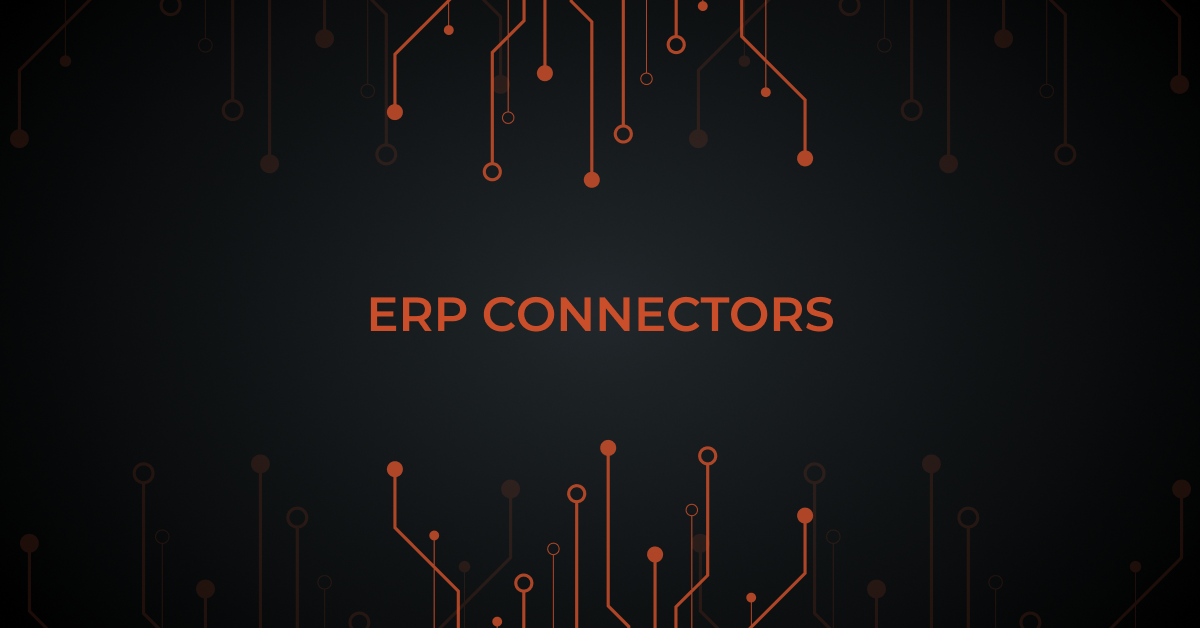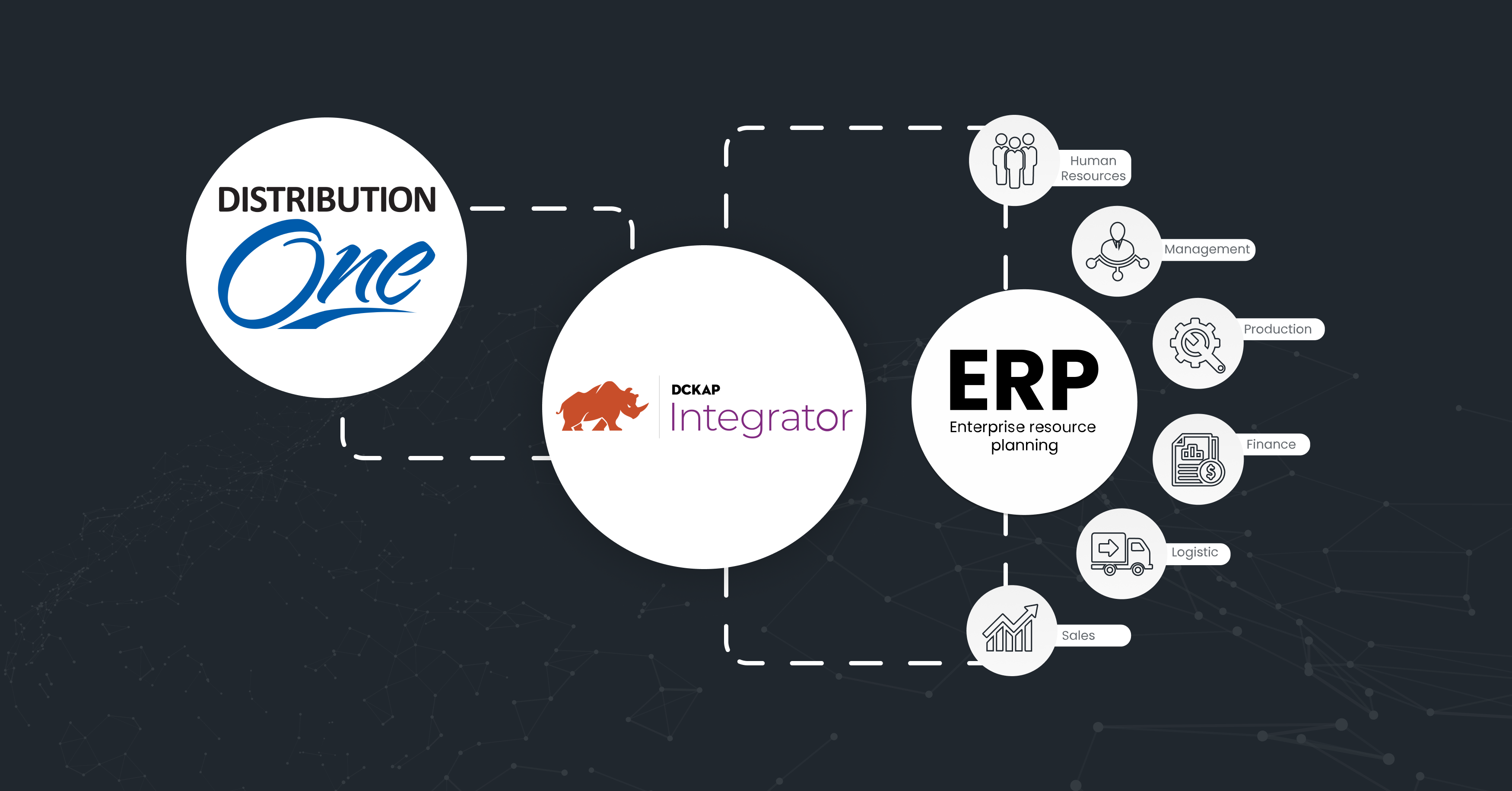ERP systems provide a centralized platform that integrates all business functionality, ensuring smooth data transfer and seamless communication between different departments.
Yet, even with the capabilities of ERP systems, businesses still require a way to connect with other third-party systems, such as ecommerce, supply chain management, and Business Intelligence (BI) systems. This is where ERP connectors come into play.
Types of ERP Connectors
There are several types of ERP connectors available in the market, each with its own unique value and specific use cases. Some of the most common types of ERP connectors include:
Web Service Connectors
Web service connectors enable communication between the ERP system and web services. They are commonly used for e-commerce and supply chain management systems. Web service connectors use open web protocols such as REST or SOAP to communicate with other systems.
Middleware Connectors
Middleware connectors enable communication between the ERP system and other middleware applications, such as CRM, PIM or EDI databases. Middleware connectors use middleware technologies such as Message Queuing (MQ) or Enterprise Service Bus (ESB) to facilitate communication between systems.
Custom Connectors
Custom connectors are designed specifically for a business’s unique needs. They can be developed in-house or by third-party vendors. Custom connectors provide businesses with more flexibility in terms of integration and can be tailored to meet specific business requirements.
Recommended Read: The Complete Guide to ERP System Integration
Benefits of Using ERP Connectors
Using ERP connectors offers several benefits to businesses, including:
Improved Data Consistency
ERP connectors ensure data consistency across all systems, reducing errors and inconsistencies that may arise from manual data transfer. The connectors transfer data sources in real-time, ensuring that all systems and employees have access to the latest and most up-to-date information on product data, customer experience, and other valuable resources.
Streamlined Business Processes
ERP connectors automate data transfer, reducing the need for manual data entry and streamlining business functions with a centralized integration solution. This not only saves time but also reduces the likelihood of errors that can occur with manual data entry.
Better Decision Making
ERP connectors provide real-time data transfer, allowing for accurate and up-to-date information on product insights that can be used for decision-making. This improves decision-making processes, enabling businesses to respond quickly to changes in the market or internal operations.
Increased Efficiency
ERP connectors are a valuable addition to an ERP software to automate processes, reduce the time and resources needed for data transfer and allow businesses to focus on core operations. This leads to increased operational efficiency and productivity, as businesses can allocate resources and tools more effectively.
Also see: Top 18 ERP Integration Tools & Platforms (Reviewed)
Features to Consider When Choosing an ERP Connector
There are several factors to consider when selecting the right ERP connector for your business.
Integration Capabilities
One of the critical features to consider when selecting an ERP connector is its integration capabilities. The ERP connector should have the ability to integrate with your existing systems seamlessly. It should provide a flexible and scalable platform that can be customized to meet your business needs.
The ERP implementation should allow for the transfer of data between different business systems, including e-commerce, supply chain management, and customer relationship management.
The ability to integrate with other systems is crucial in today’s business environment, where businesses rely on various systems to manage their operations.
Workflow Automation
Workflow automation is another critical feature to consider when choosing an ERP connector. The ERP connector should automate workflows, reducing the need for manual data transfer, manual work and ensuring that data is transferred in real-time.
Automating workflows not only saves time and resources but also reduces the risk of errors that may arise from manual data entry. Workflow automation ensures that business processes are streamlined, allowing businesses to focus on core operations and improve productivity.
For example, ERP integration can be used to automate invoices, purchase orders and a variety of business functions with greater accuracy and efficiency.
Extensibility
ERP systems are designed to grow with businesses, and it is essential to select an ERP connector that is extensible. The ERP connector should allow for the addition of new systems and applications as your business grows.
Extensibility ensures that the ERP connector can adapt to changes in your business environment and accommodate new business systems as they are implemented.
Selecting an extensible ERP connector will save you time and resources in the long run and provide a scalable solution that can grow with your business.
API Management
API management is a critical feature to consider when selecting an ERP connector. The ERP connector should provide a comprehensive API management platform that enables secure and efficient data transfer between systems.
API management enables administrators to manage and monitor the APIs that are used to transfer data between systems, providing visibility into data transfers and ensuring that data is transferred securely.
It also provides a framework for managing the authorization and authentication of users accessing the APIs.
Best Practices for ERP Connector Integration
Integrating ERP connectors into your business operations can be a game-changer. However, to get the most out of these connectors, it’s essential to follow some best practices. Here are some tips to consider when integrating ERP connectors:
Ensure Data Consistency
One of the most crucial aspects of SAP ERP connector integration is ensuring data consistency. Without consistency in financial data and other data points, you risk having errors and inconsistencies that could cause major problems down the line and can affect customer satisfaction.
To prevent this, it’s essential to map fields and create validation rules to ensure that the data is consistent across all systems.
Review and Improve Your Integration Strategy
Integrating ERP connectors is not a one-time task. To ensure that your integration strategy is meeting your business needs, you need to review and improve it regularly. This includes identifying areas for improvement and implementing changes where necessary.
Document Your Integration Plan
Documentation is critical when it comes to ERP connector integration. It ensures that everyone involved in the process understands what needs to be done and when. Documenting your ERP integration plan can also help you identify potential issues and address them before they become bigger problems.
Optimize Your Integration to Streamline Workflows
The goal of integrating ERP connectors is to streamline workflows and improve efficiency. To achieve this, it’s essential to optimize your integration plan to ensure that data is transferred in real-time and that workflows are automated as much as possible. By doing this, you can reduce the time and resources needed for data transfer and focus on your core operations.
Streamline Your Business Processes with DCKAP Integrator
If you’re looking to streamline your business processes and improve data consistency, using ERP connectors may be the solution for you. ERP connectors serve as a bridge between disparate systems, enabling data transfer and synchronization between the ERP system and other systems.
With these best practices for integration, you can get the most out of your ERP connection for your business.
Contact our integration experts today to know how DCKAP Integrator can help get your systems talking to each other.
FAQs
What are ERP Connectors?
ERP connectors are ERP middleware applications that allow for communication and connection between ERP systems and other third-party systems. ERP connectors serve as a bridge between disparate systems, enabling data point transfer and synchronization between the SAP S ERP system and other systems. ERP connectors can be installed on-premise or in the cloud, depending on the vendor and the business’s needs.
What can ERP Connectors help connect?
ERP connectors can help sync information from an ERP to a business’ ecommerce platform, PIM, CRM, EDI, payment gateways and other tools. If required, data can be synced from ERP to ERP as well.
Contents




